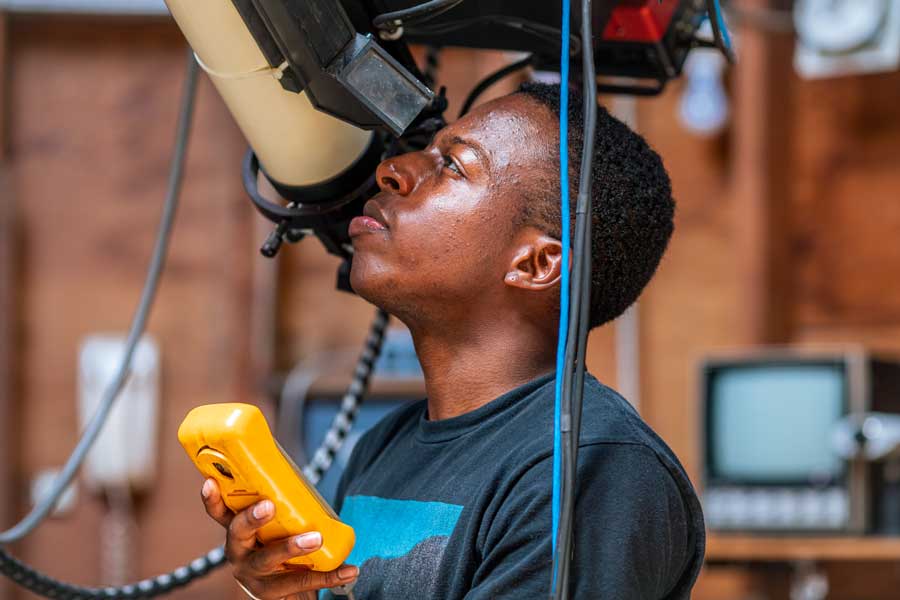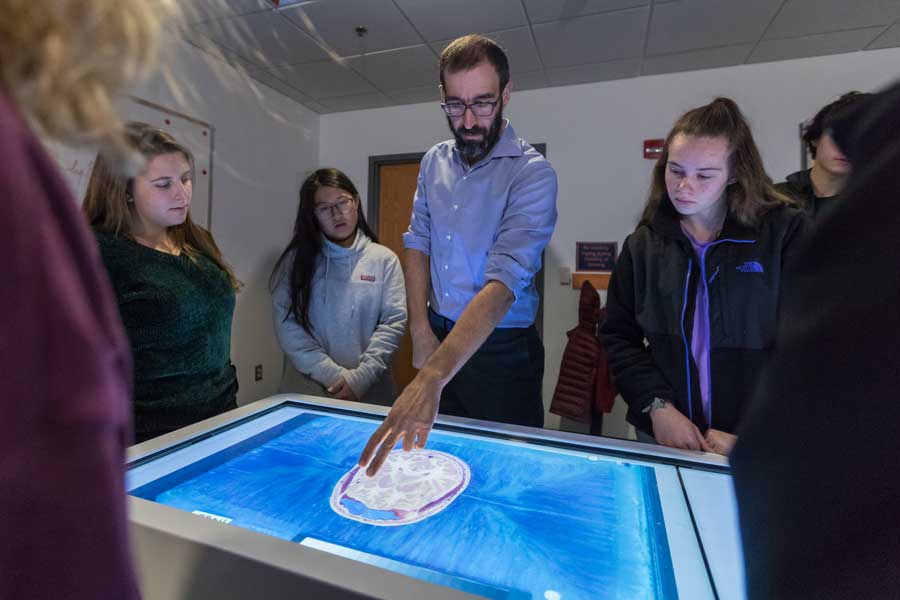
On Nov. 1, Gettysburg College received a six-year grant from the Howard Hughes Medical Institute (HHMI) as part of its Inclusive Excellence 3 (IE3) initiative, designed to help colleges and universities continue to build capacity for student inclusion and belonging, especially for those historically excluded groups in the science, technology, engineering, and mathematics (STEM) fields.
Gettysburg College is a member of HHMI’s Learning Community Cluster 4, which concentrates on three projects surrounding transformative policy change. In response to the initiative’s challenge to “evaluate effective inclusive teaching,” Gettysburg College will focus on faculty-led work to advance inclusive pedagogy as a marking of excellence.
“On behalf of our entire Gettysburg College community, we are deeply grateful to HHMI for recognizing our campus-wide commitment to inclusive excellence through this generous grant,” said President Bob Iuliano. “Diversity in all its dimensions is a source of strength. In STEM fields, this often results in new ideas, new approaches, new breakthroughs, and ultimately, new innovations that deepen our understanding of the world and that drive our society forward. I look forward to all that will come from this important investment in our academic community.”

HHMI has awarded nearly $500,000 to provide our first-class faculty the required tools and resources to support their students as teachers, scholars, and mentors, and to deeply imbed in our policies and practices the College’s core value of inclusion and belonging.
“At Gettysburg College, our faculty are committed to creating learning environments where every student can do their best work and grow as aspiring leaders in their respective fields,” said Provost Chris Zappe. “HHMI’s support over the next six years is invaluable. It will strengthen and extend these efforts in ways that are not only seen in our classrooms, but also felt in the lives of our students and faculty. We are grateful for this opportunity.”
“Sustaining advances in diversity and inclusion requires a scientific culture that is centered on equity,” said Blanton Tolbert, HHMI’s vice president of science leadership and culture, in the press release. “In science education, increasing the number of individuals from underrepresented backgrounds must go hand in hand with creating inclusive learning environments in which everyone can thrive.”

Leading this effort are Health Sciences Prof. Josef Brandauer, the director of the Johnson Center for Creative Teaching and Learning; Physics Prof. Kurt Andresen; Psychology Prof. Kathy Berenson; Associate Provost for Academic Assessment and Dean of Natural Sciences, Computer Science, and Mathematics Darren Glass; and Biology Prof. Paula Trillo, working in partnership with Gettysburg College faculty and partners campus-wide.
“This grant allows us to highlight, support, and value the excellent—and often unheralded work—that many instructors on campus already do,” said Brandauer. “We want to support the creation of inclusive environments where we meet students on an individual basis, with empathy and kindness, in order to maximize their growth and achievement. Strengthening the College’s capacity to do this is a welcome opportunity.”
Learn more about the HHMI Inclusive Excellence 3 initiative.